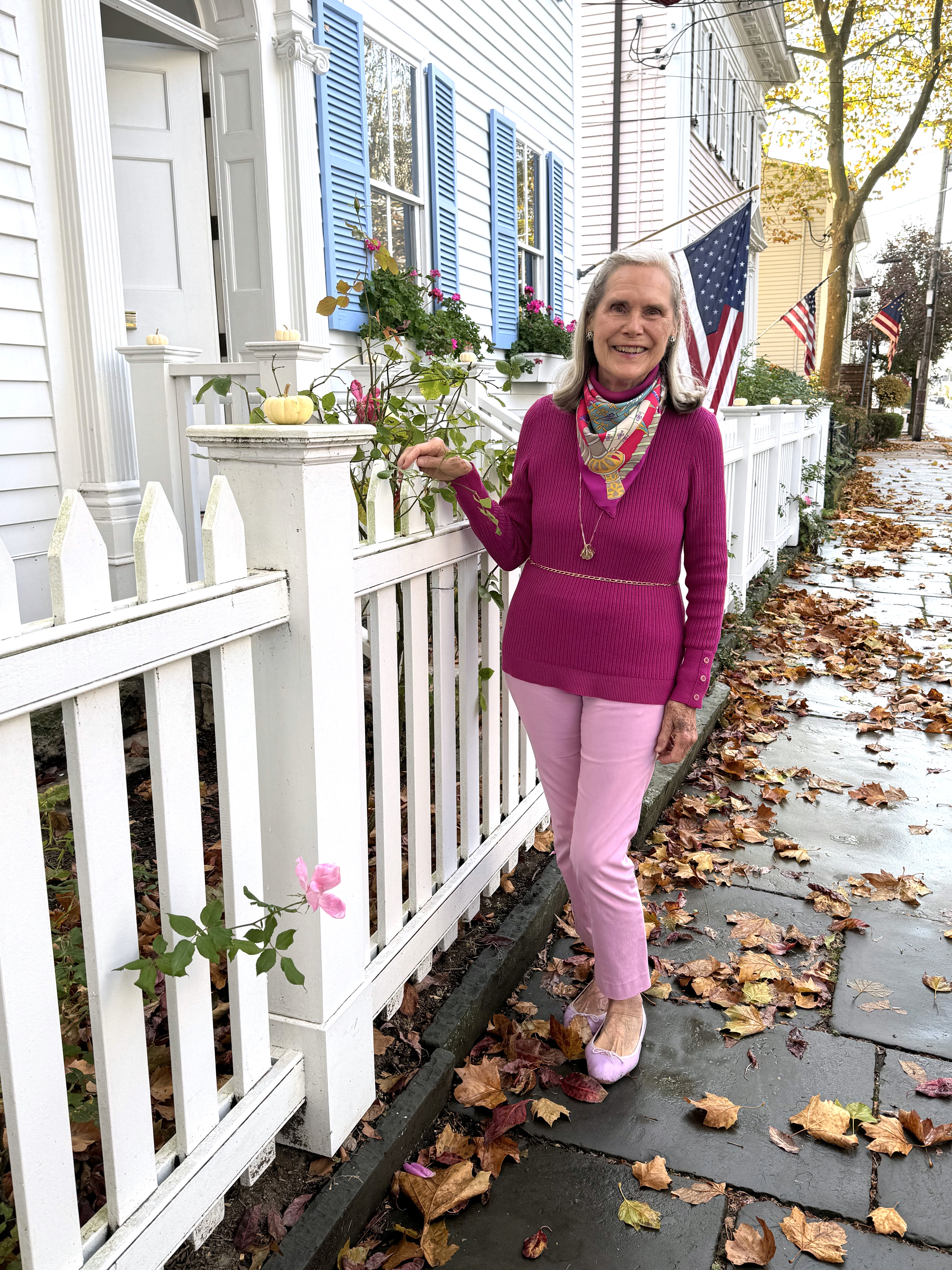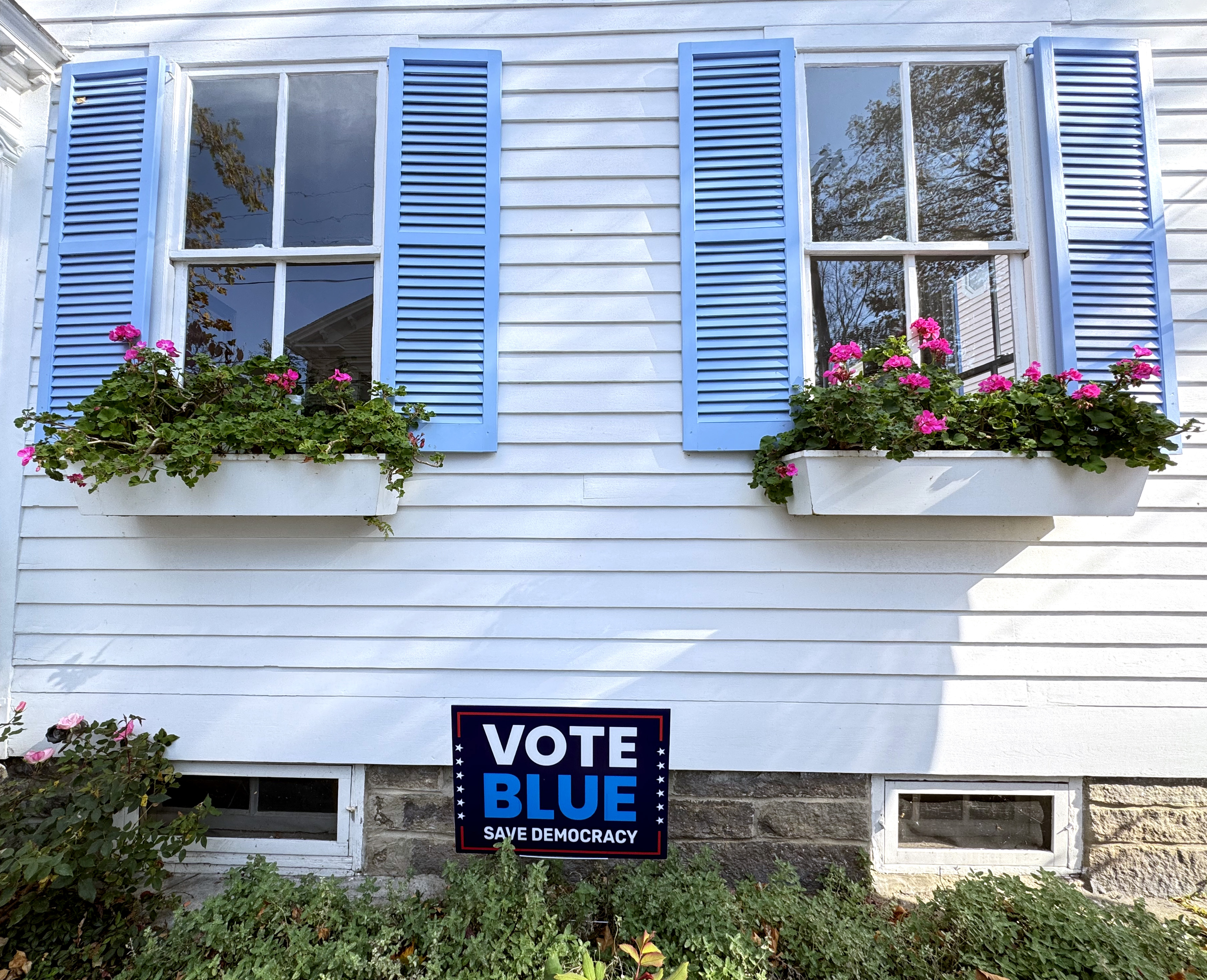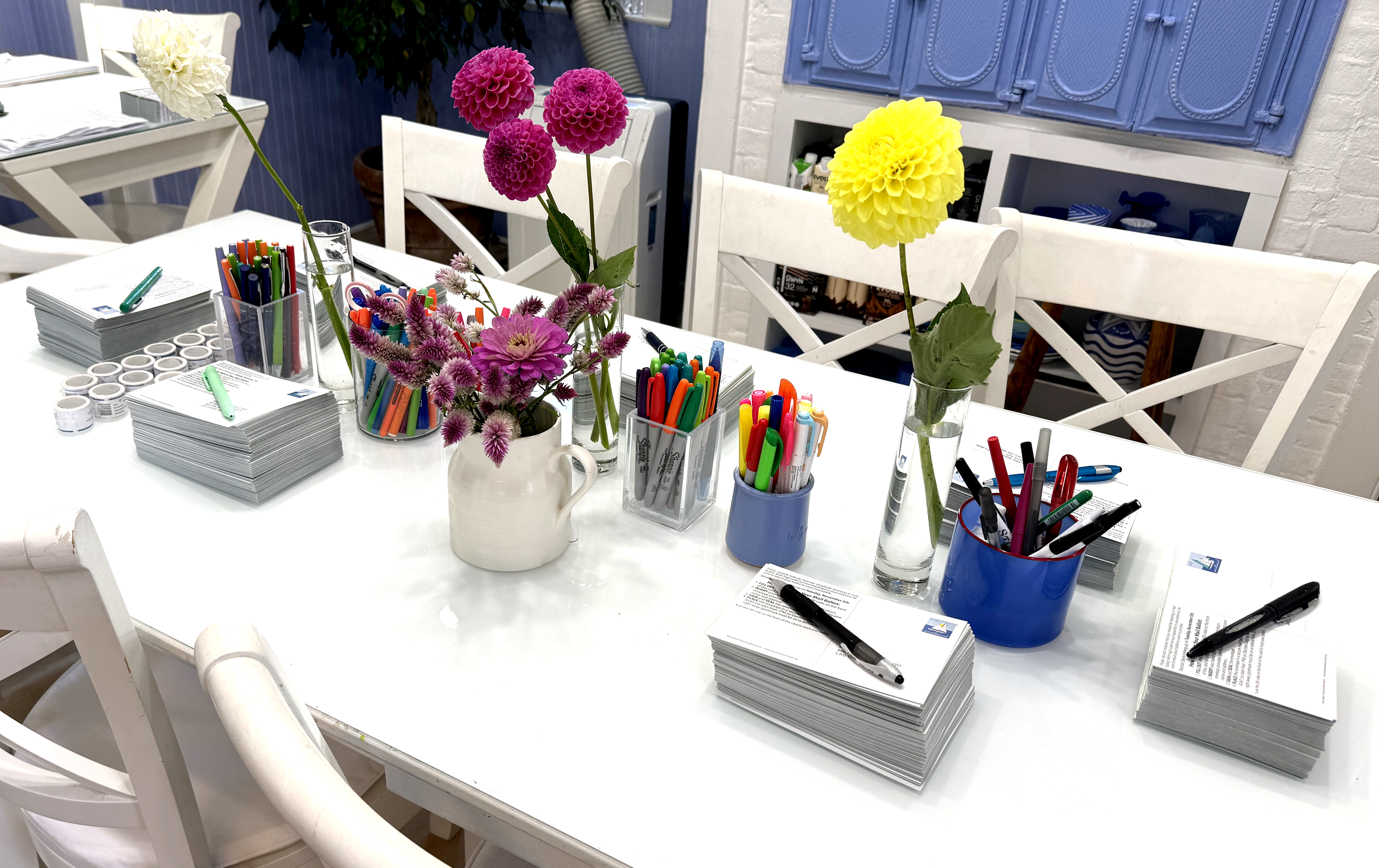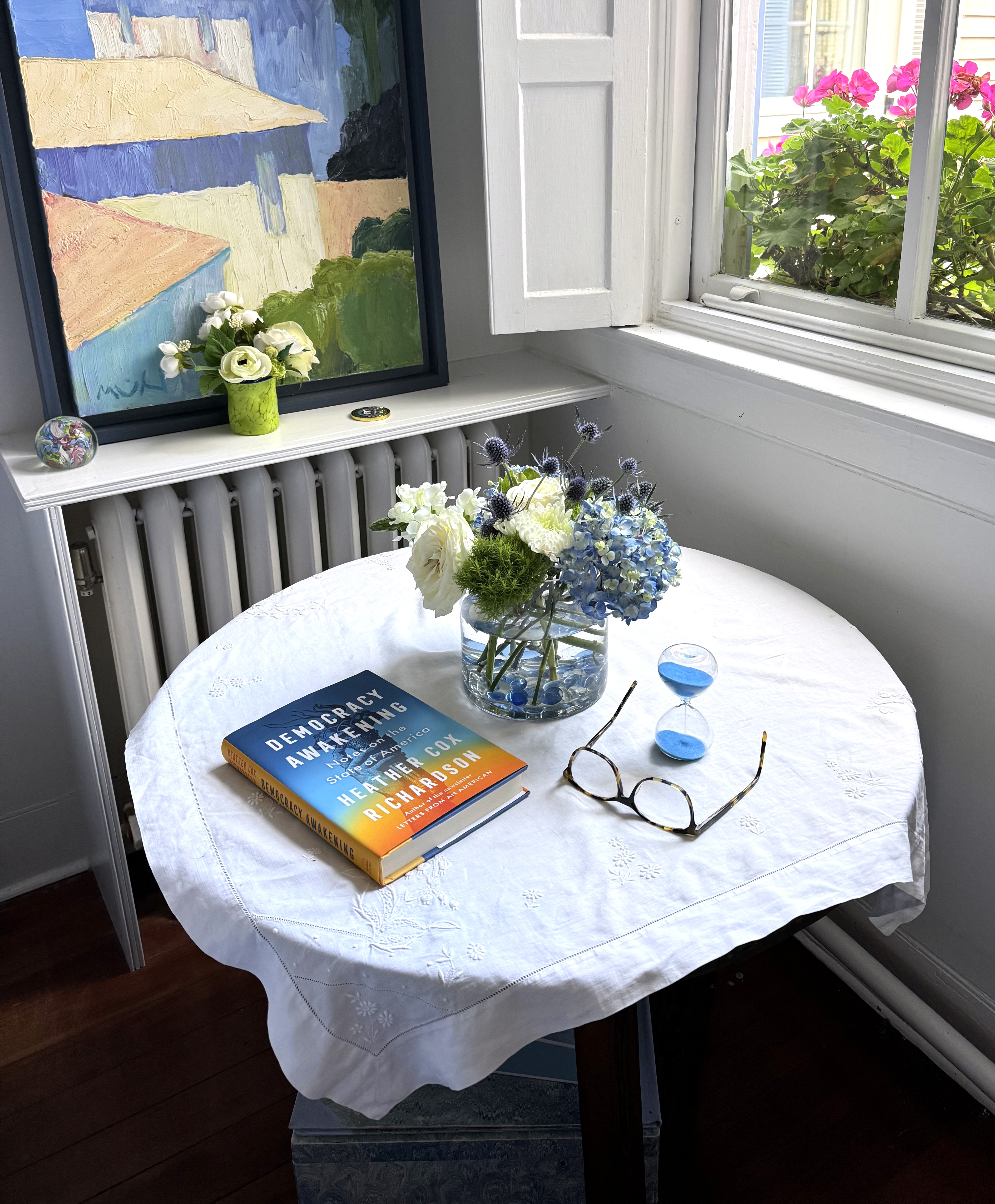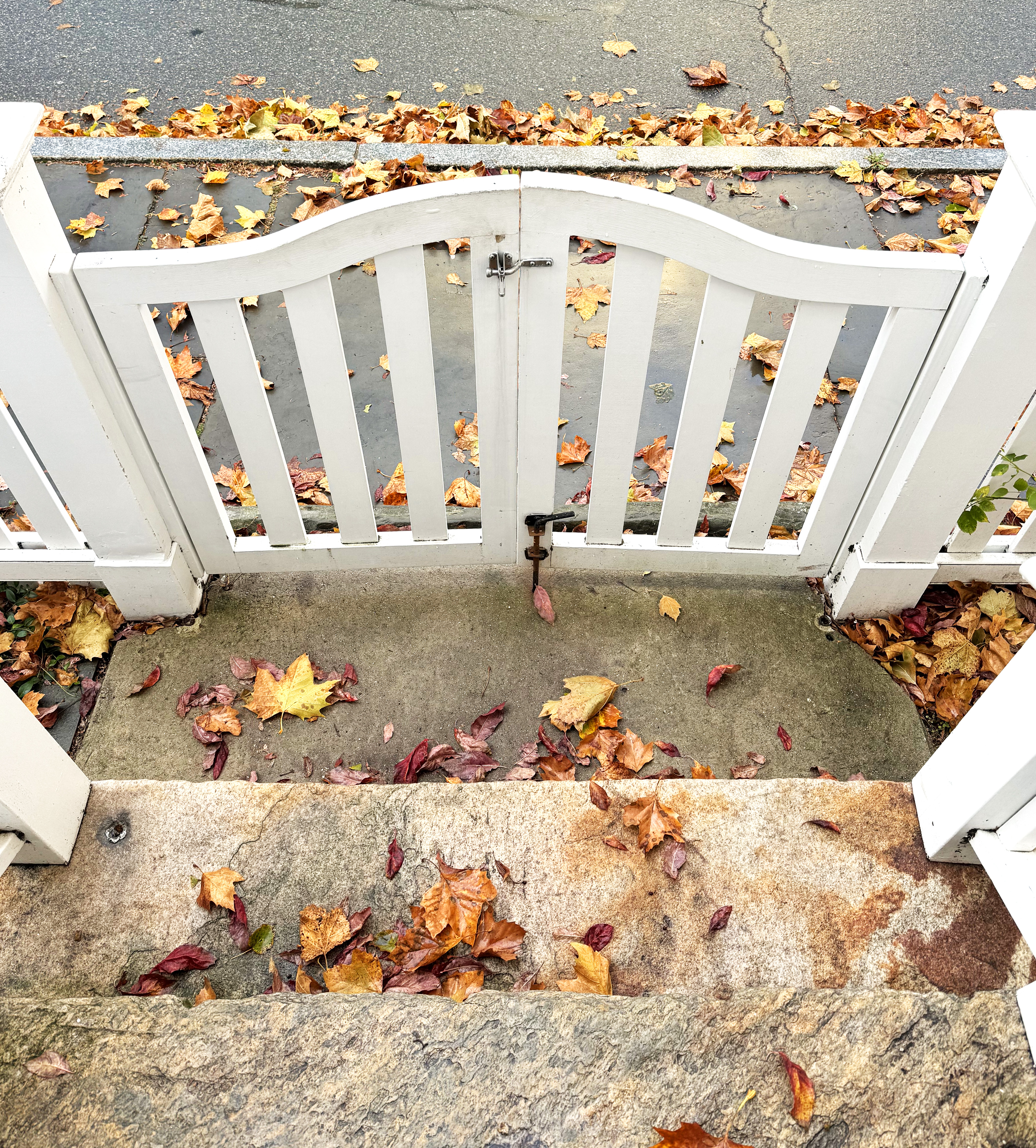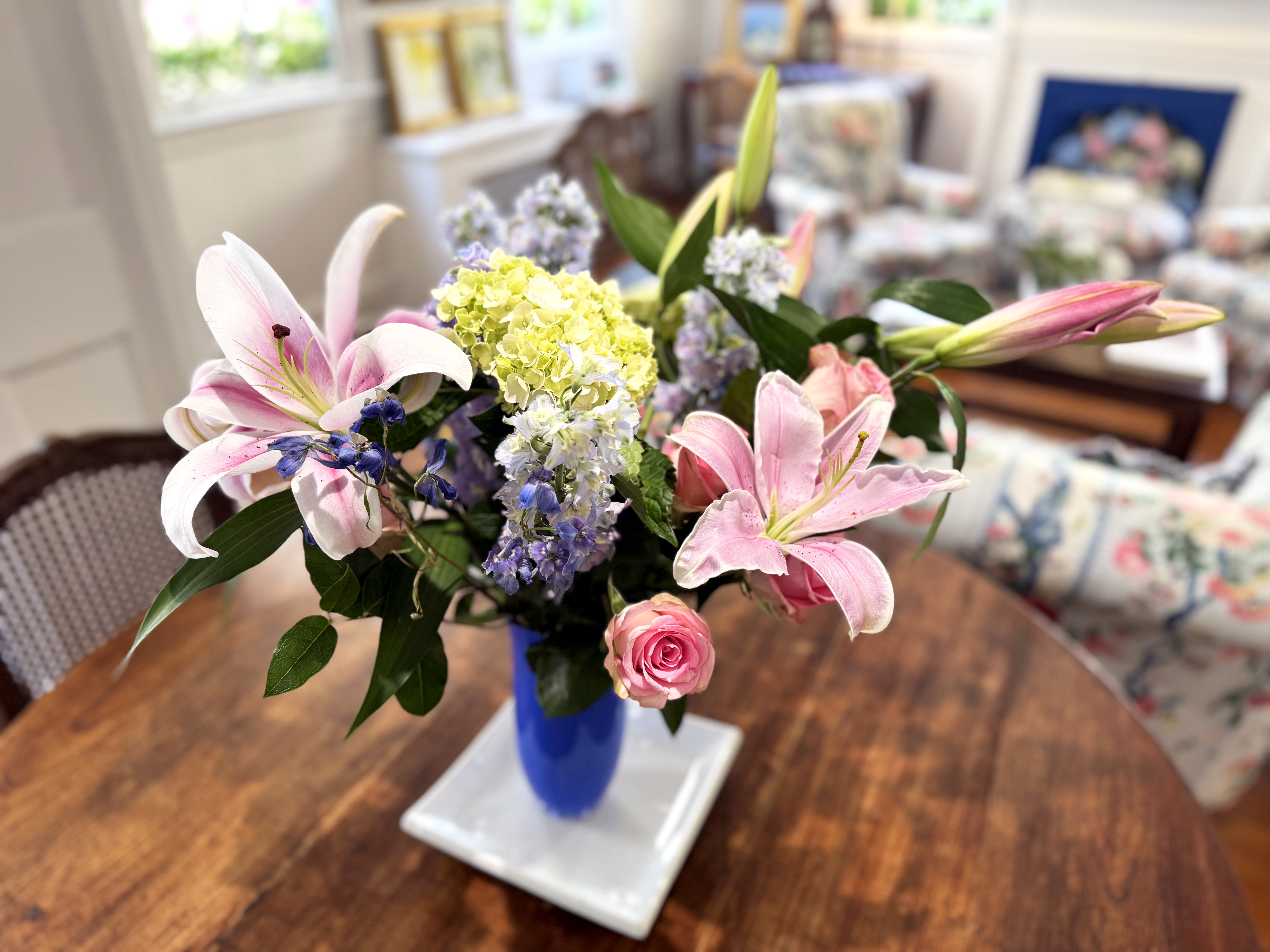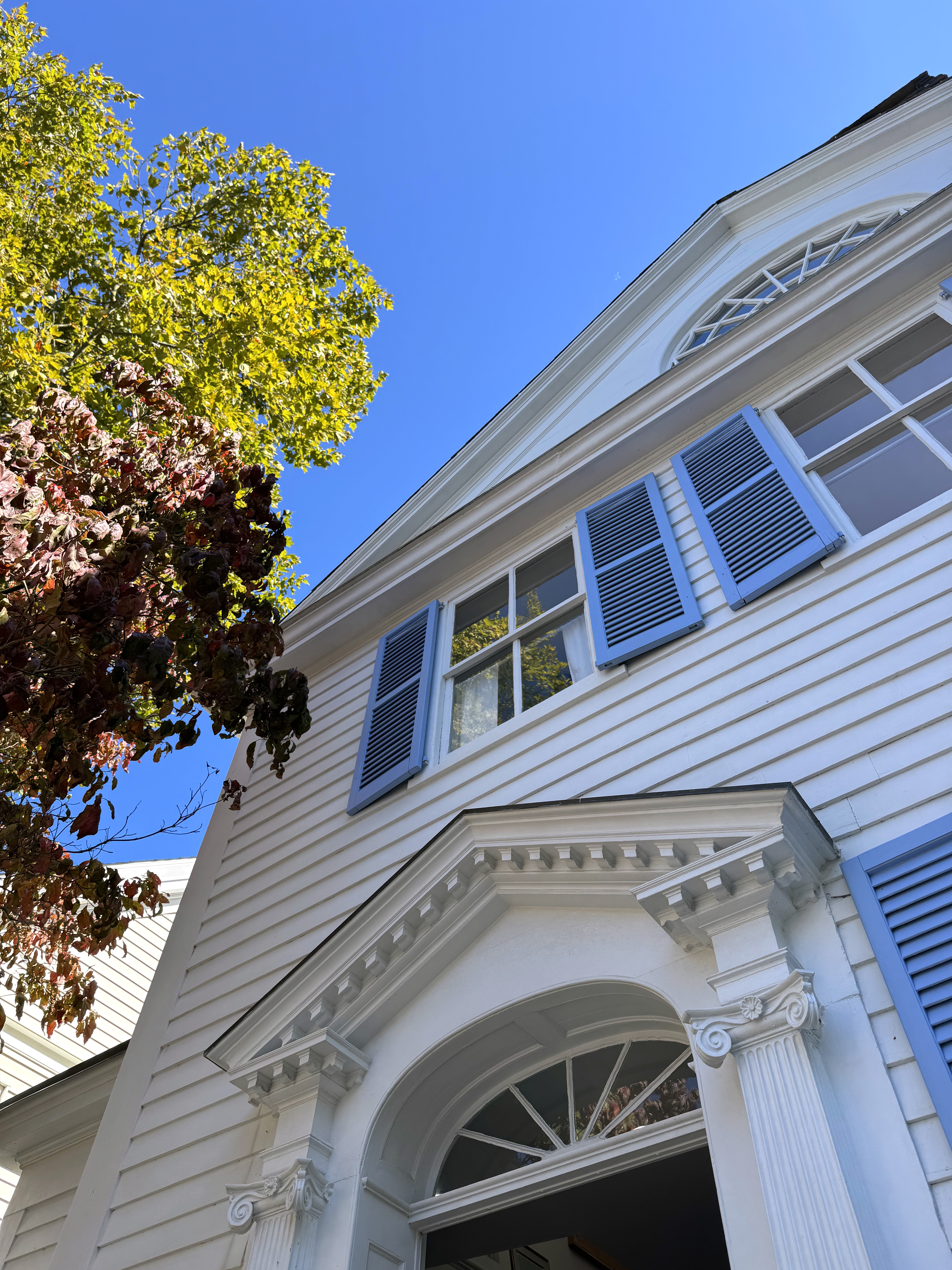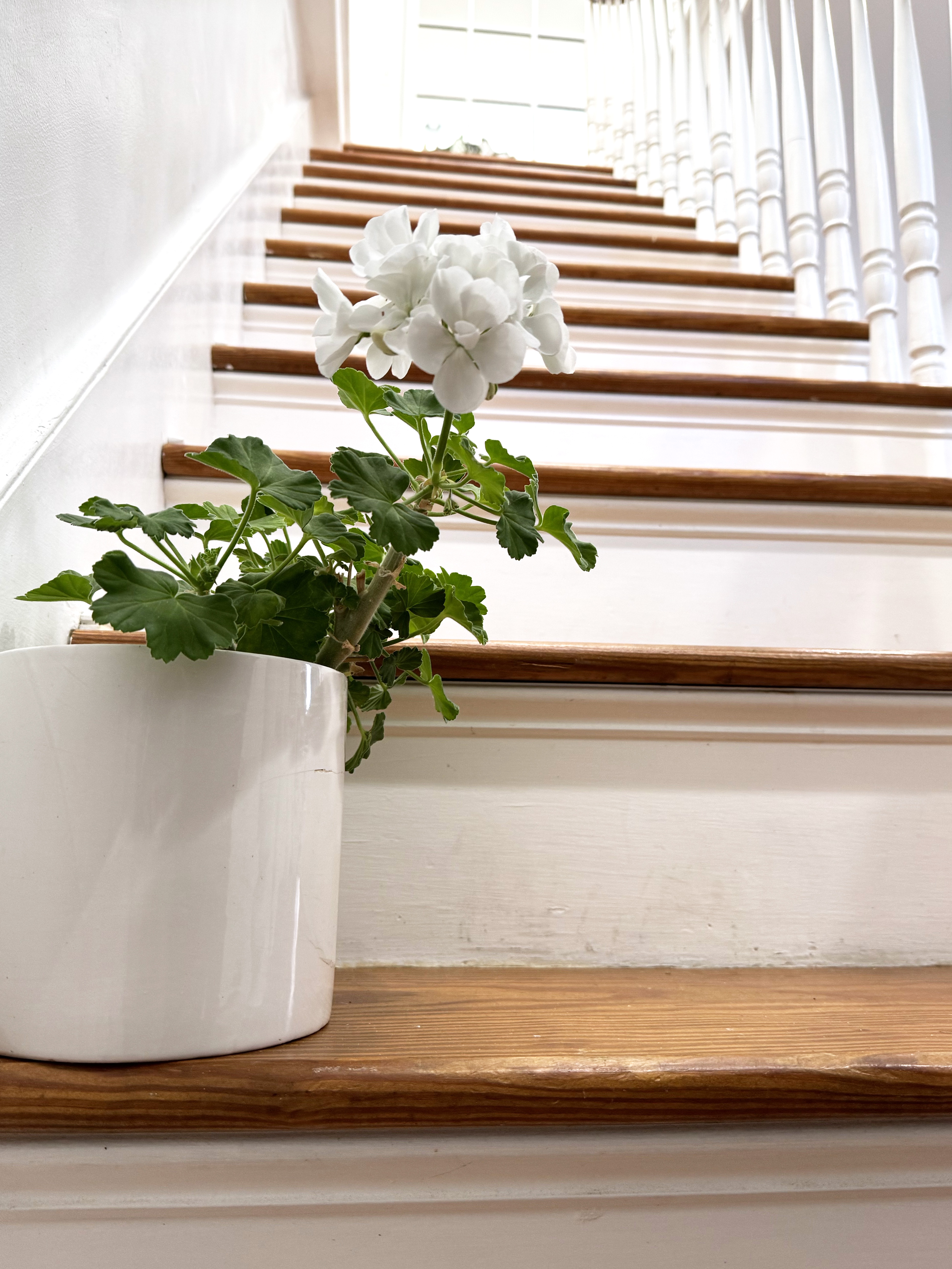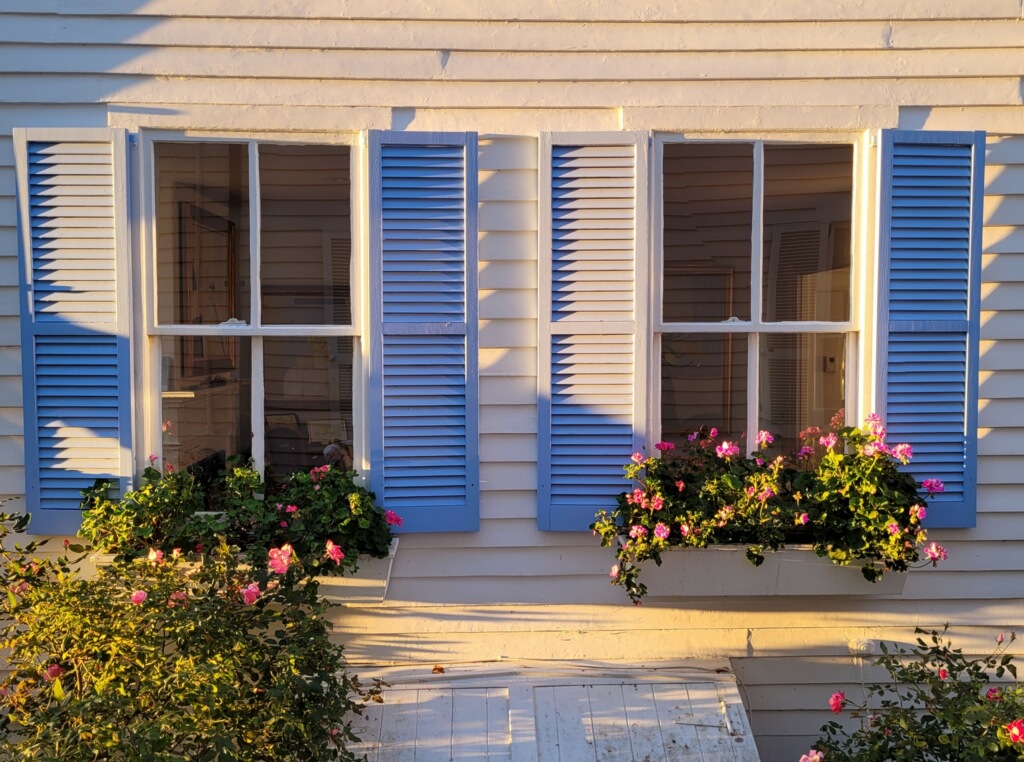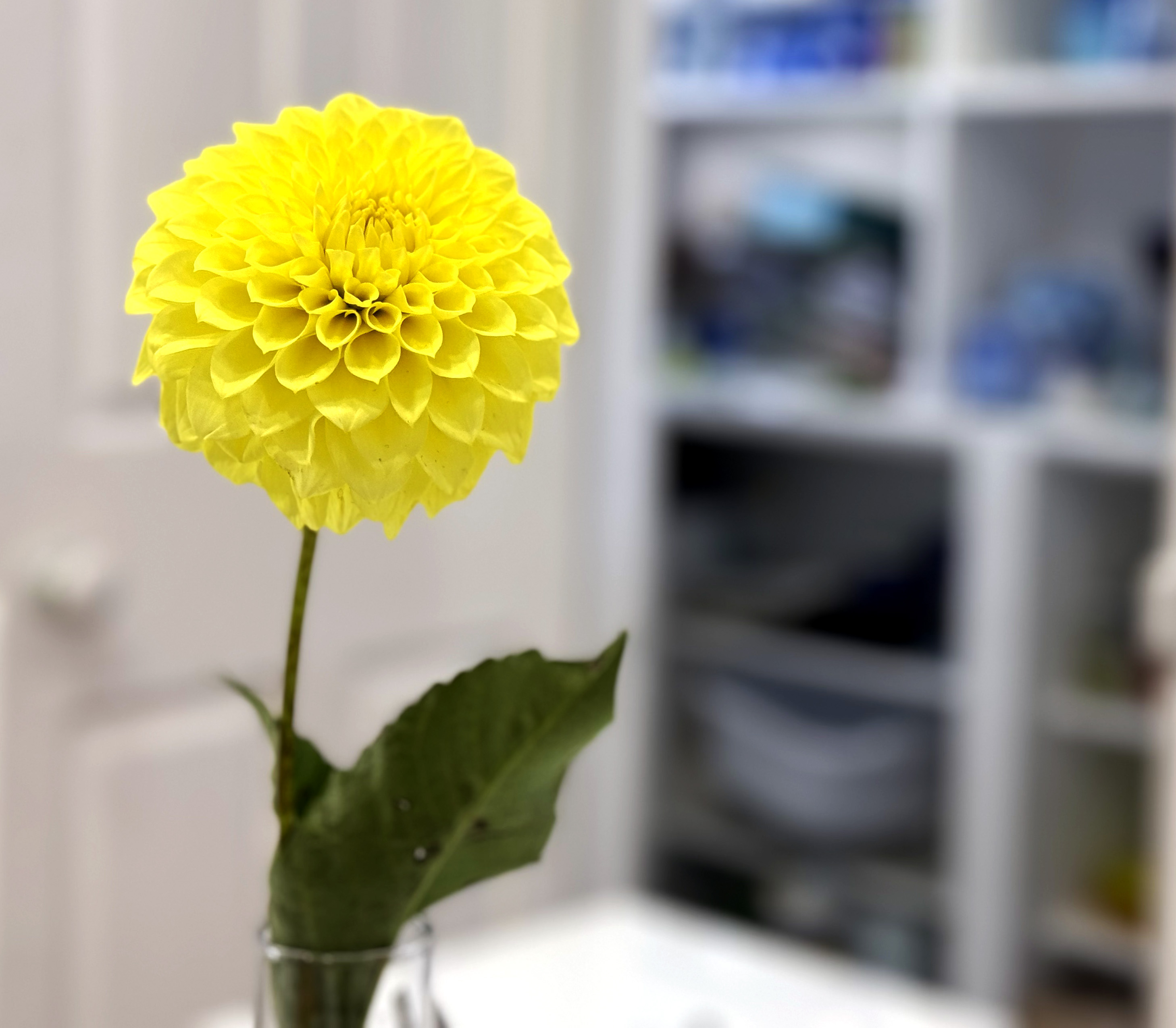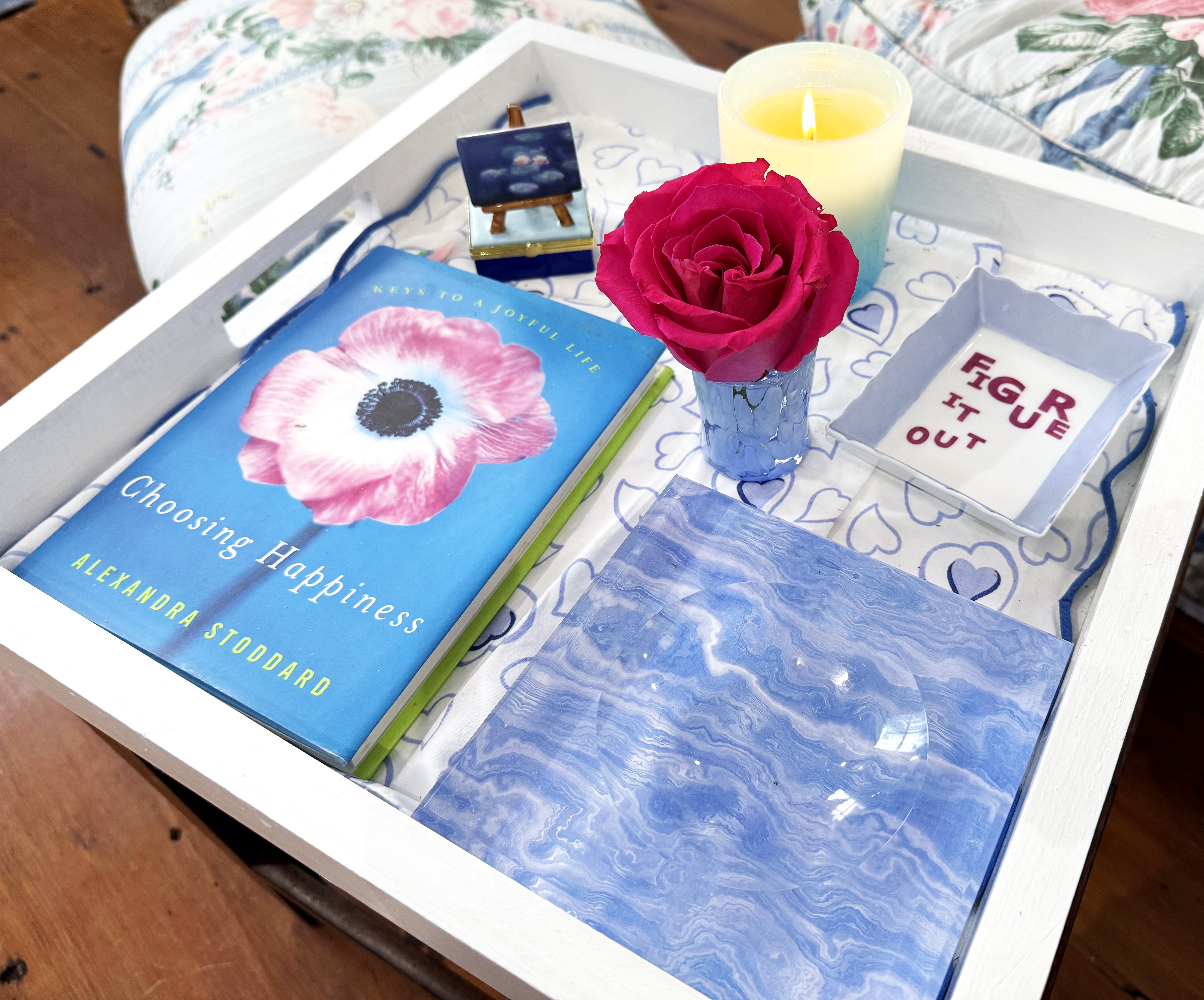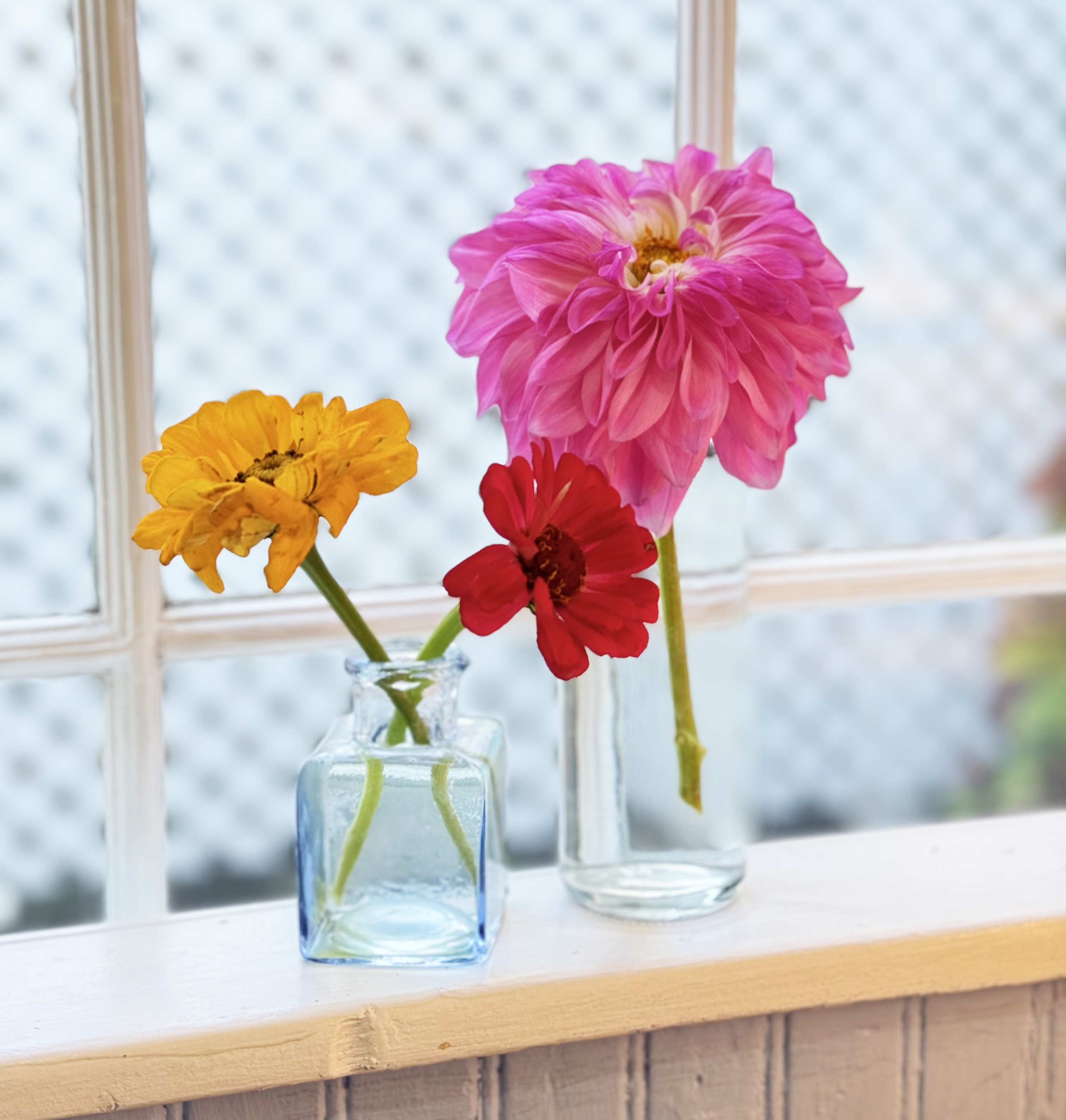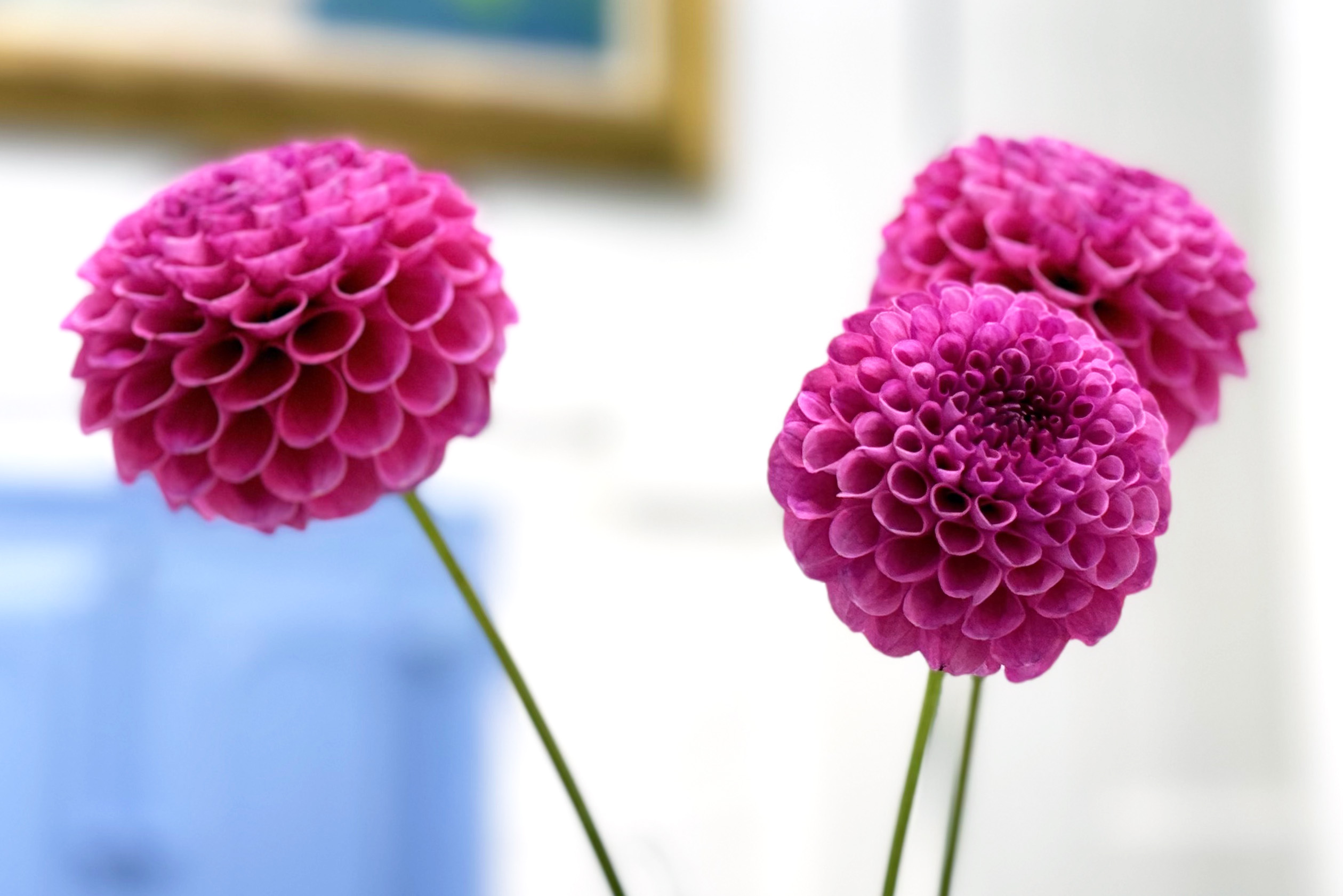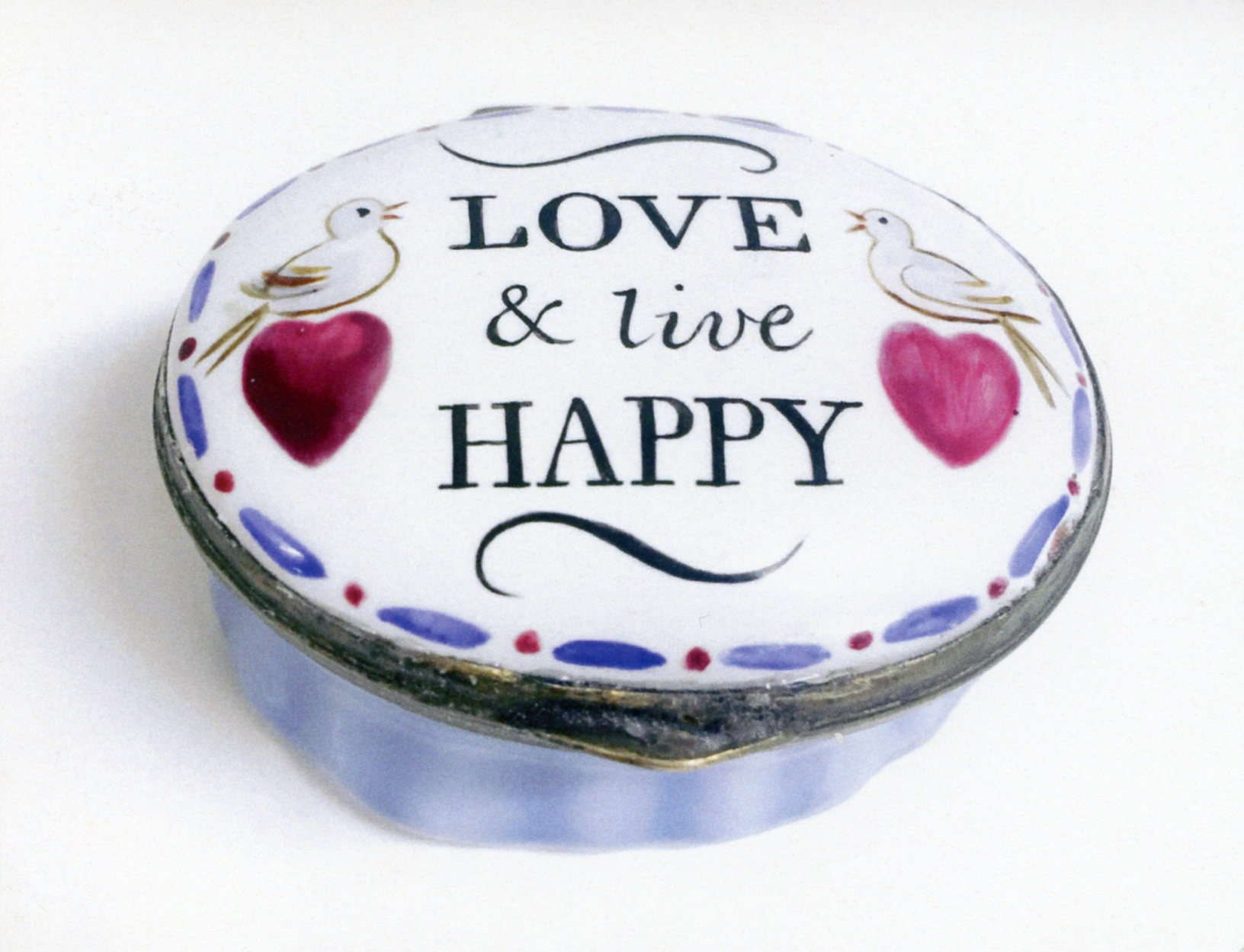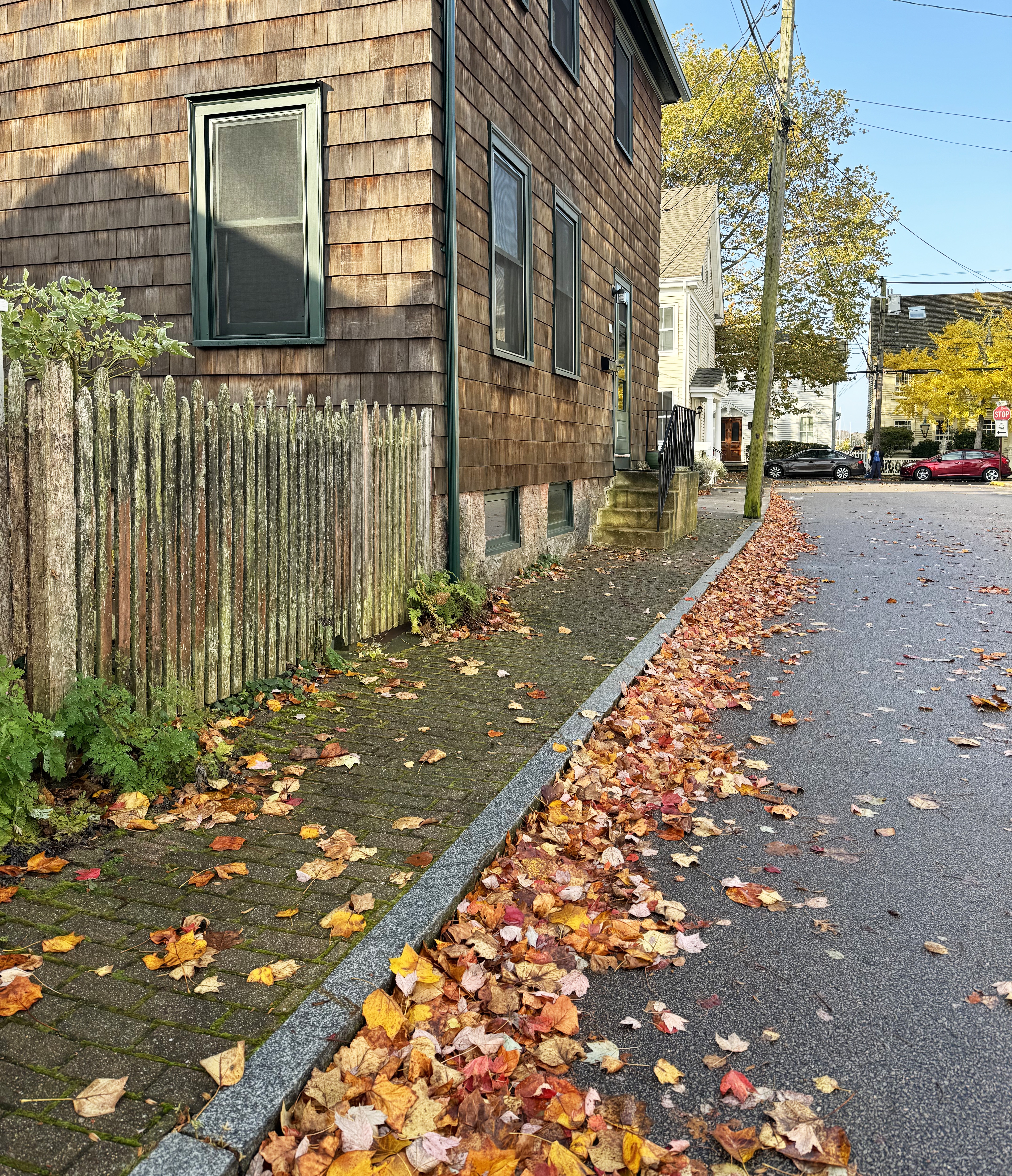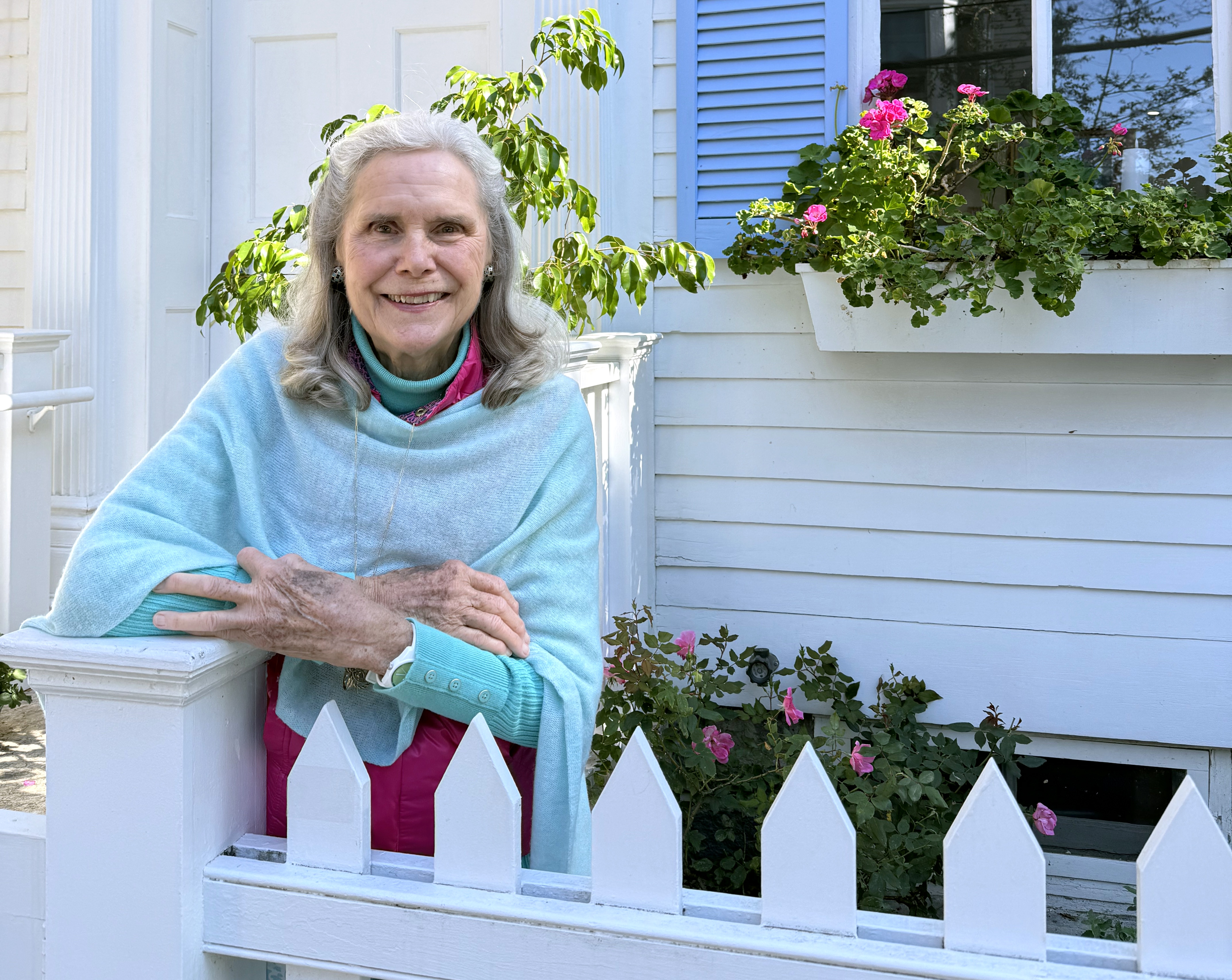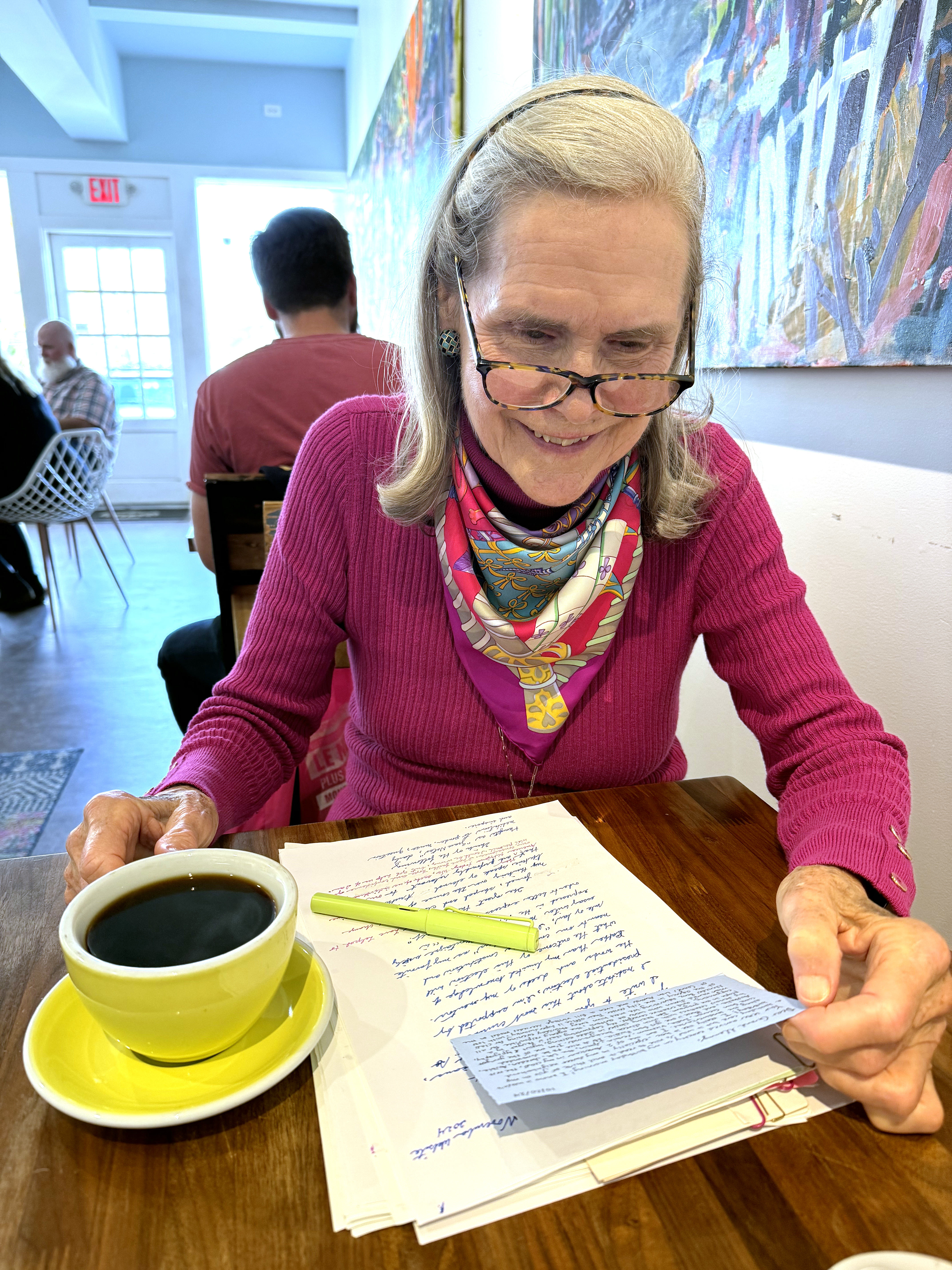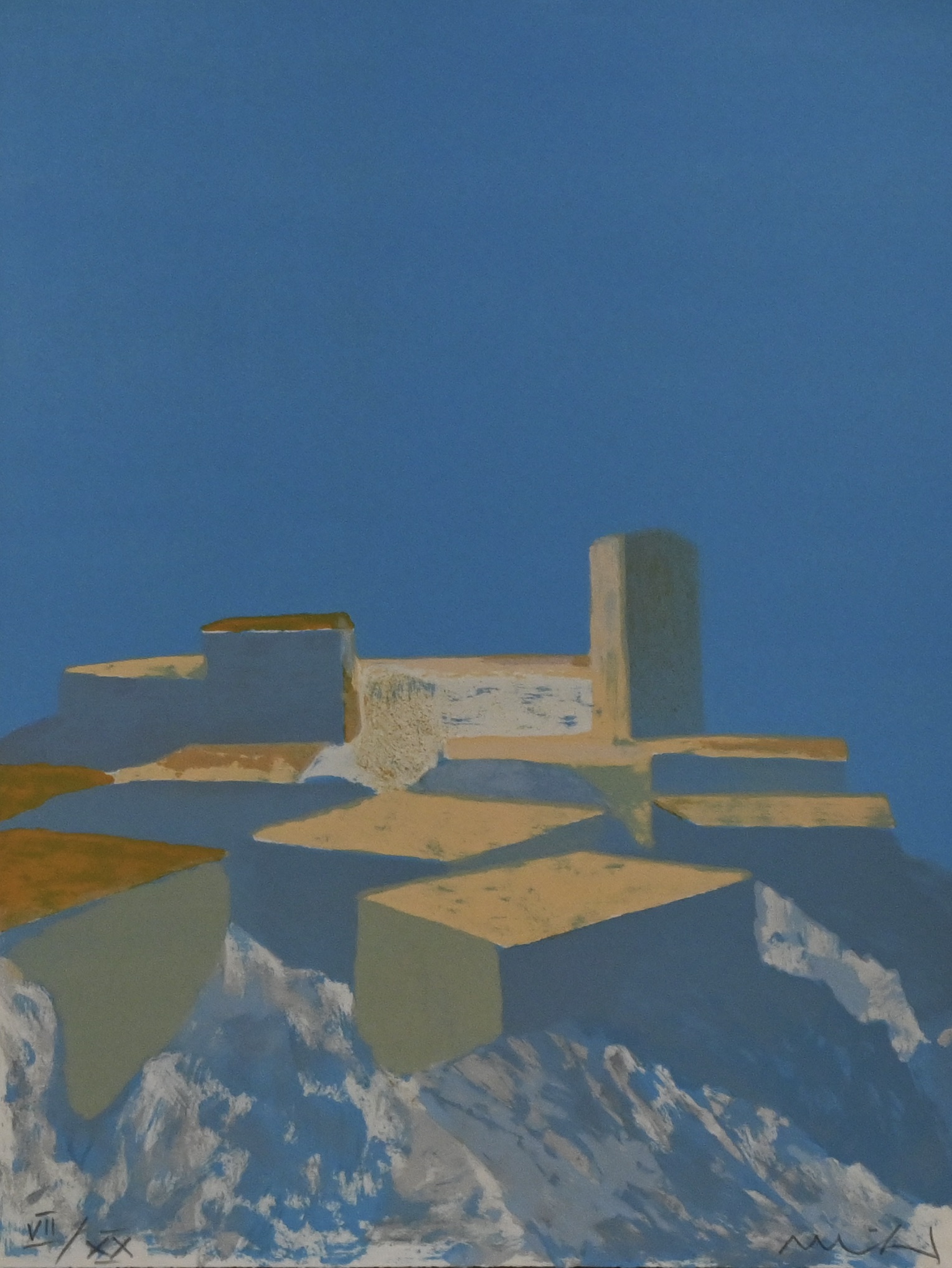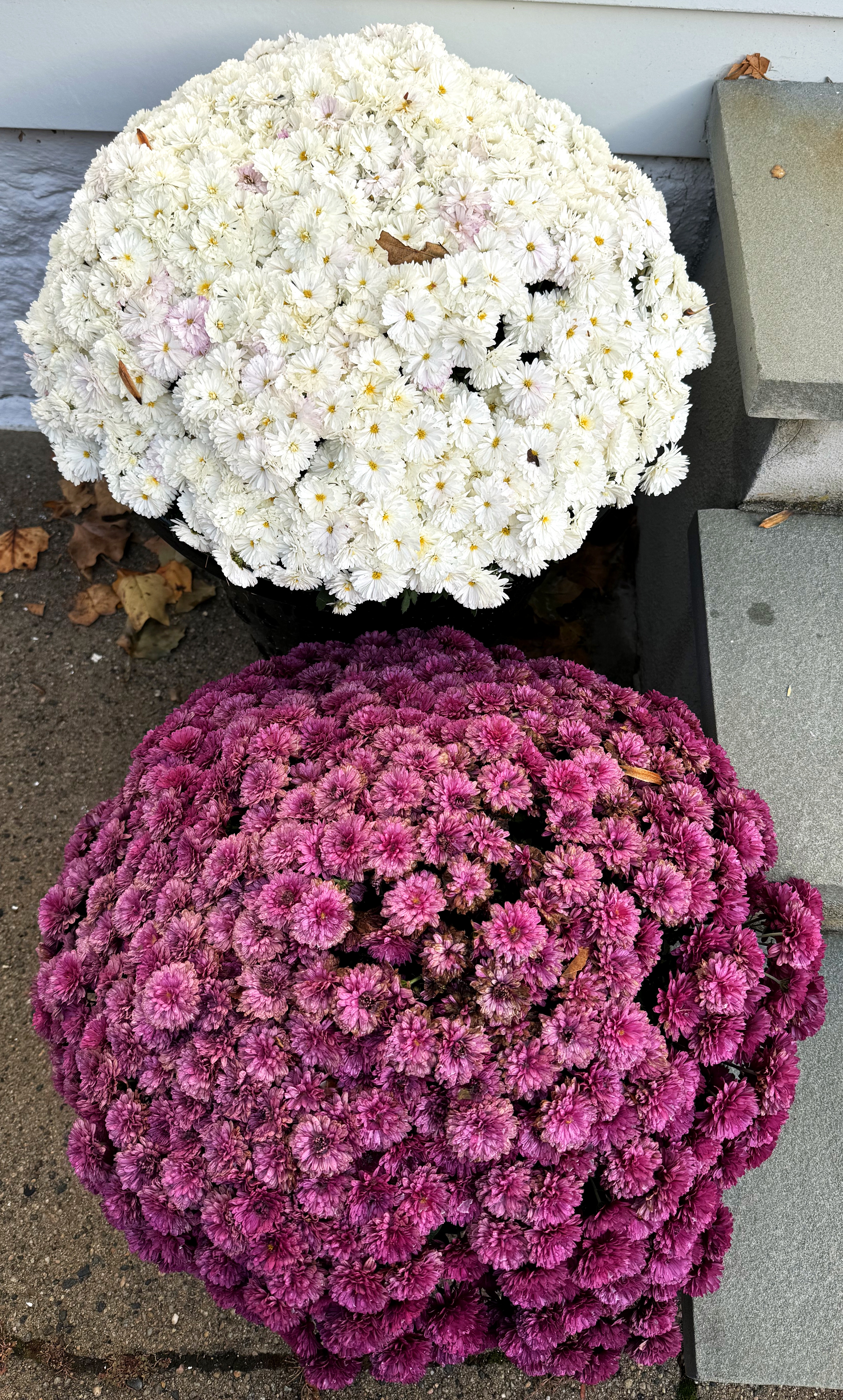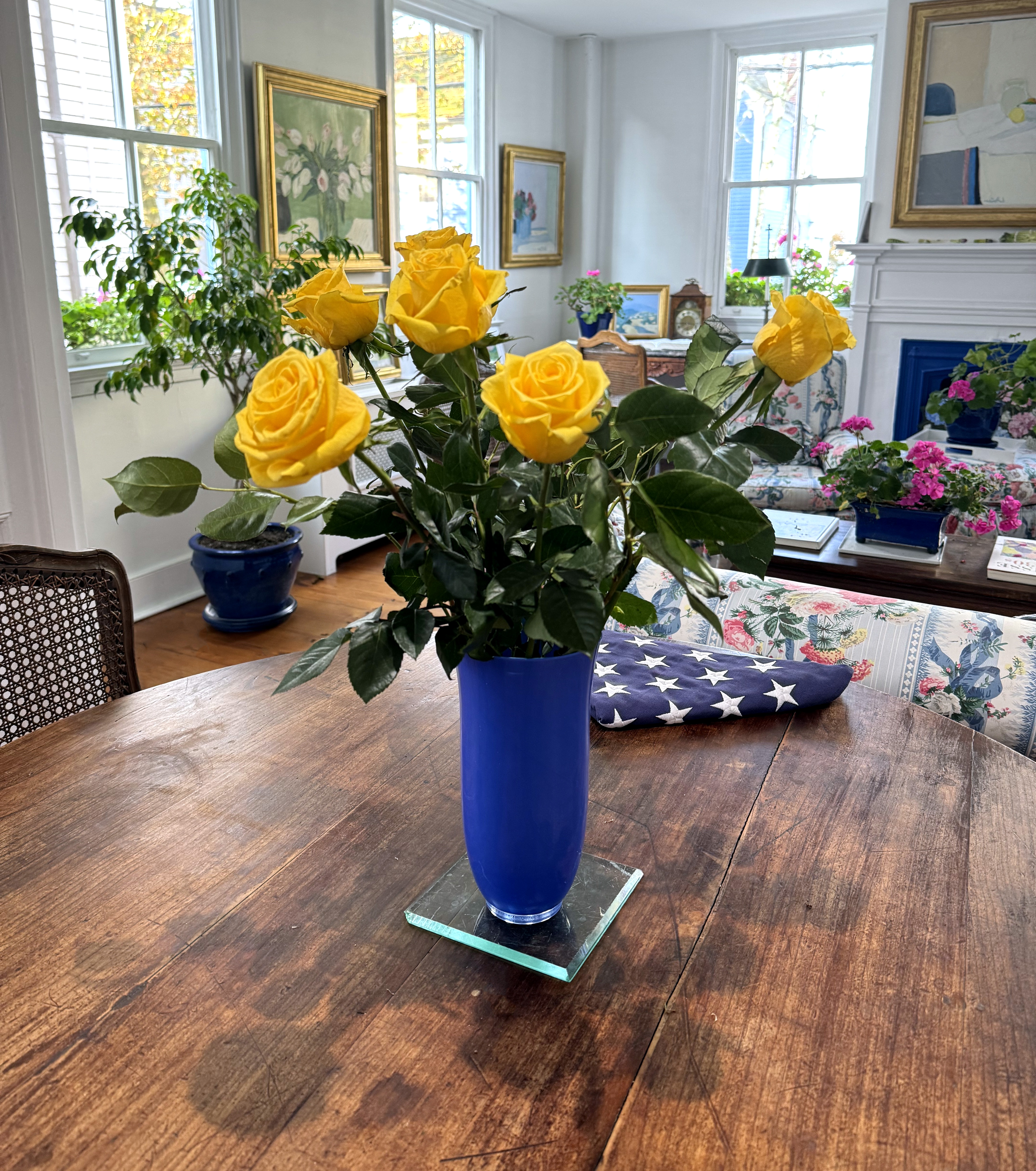AUTHOR | SPEAKER | PHILOSOPHER | DESIGNER
November 2024
Dear Friends,
I love you!
In this November letter to you, my friends, I write to you with a humble heart. As I meditate about this most crucial presidential election, I’m supported by the words and deeds of my mentors. Rather than offering my limited knowledge of what the outcome of this election will mean to our country’s Constitution and rule of law, “I quote others,” as my favorite essay writer Michel de Montaigne wisely expressed in the 16th century, “in order to better express myself.”
The great thinkers who have helped form, shape, clarify and change my thinking over the course of my lifetime speak of eternal truths. I believe that they are profoundly relevant to our lives as American citizens today. We, each of us individually, vote our conscience. I have faith, hope and confidence that good will prevail. I could be wrong, but God help us if I am.
Think of the following thoughts as Grace Notes, daily meditations to ponder, muse, question and inspire.
“Democracy arises out of the notion that those who are equal in any respect are equal in all respects; because men are equally free, they claim to be absolutely equal.”
“A state is not a mere society, having a common place, established for the prevention of mutual crime and for the sake of exchange…. Political society exists for the sake of noble actions, and not of mere companionship.”
“If liberty and equality, as is thought by some, are chiefly to be found in democracy, they will be best attained when all persons alike share in the government to the utmost.”
“The best political community is formed by citizens of the middle class.”
“They should rule who are able to rule best.”
—Aristotle
“When the people of the world all know beauty as beauty, there arises the recognition of ugliness. When they all know the good as good, there arises the recognition of evil.”
—Lao Tzu
“One for all, or all for one.”
—Latin Phrase
“This above all: to thine own self be true,
And it must follow, as the night the day,
Thou canst not then be false to any man.”
—William Shakespeare, Hamlet
“I don’t know what the future holds, but I know who holds the future: It is you.”
—Sandra Day O’Connor
“The life of the nation is secure only while the nation is honest, truthful and virtuous.”
— Frederick Douglass
“Living well and beautifully and justly are all one thing.”
—Socrates
“I would like … to see us take hold of ourselves, look at ourselves and cease being afraid.”
—Eleanor Roosevelt
“Living well and beautifully and justly are all one thing.”
—Socrates
“Men like Abraham Lincoln recognized that such a struggle was not just about who got elected to the White House. It was the story of humanity, ‘the eternal struggle between these two principles — right and wrong — throughout the world.’ Lincoln made it clear that those who wanted the right to self-determination had always had to struggle — and would always have to struggle — against those who wanted power…. We are at a time of testing. How it comes out rests, as it always has, in our own hands.”
—Heather Cox Richardson, Democracy Awakening: Notes on the State of America
“We have always held to the hope, the belief, the conviction that there is a better life, a better world, beyond the horizon.”
—Franklin Delano Roosevelt
A Meditative Walk Through Nature
Last summer, friends invited me to join them on an enchanting visit to a garden oasis in Little Compton, Rhode Island. Sakonnet Garden is an intimate acre of space for gardeners and lovers of nature to explore. Art and nature bond seamlessly here as sky and earth join in poetic harmony. John Keats reminds us that “the poetry of earth is never dead.”
Enthralled by my walk through this labyrinth of sensuous paths that led us onward to unexpected experiences, I yearned to return to explore more of this enchanting natural sanctuary. Elissa and I picked a beautiful August afternoon to feast our senses on nature’s beauty that had been cultivated, refined and loved by two visionaries over half a century.
I’m happy Elissa was able to capture this awesome garden that began in the mid 1970s, when two men, John and Mikel, began to clean some of these large organic spaces that were a natural tangle of the original thicket. John and Mikel understood what William Wordsworth, the British poet, expressed when he wrote, “Nature never did betray the heart that loved her.” Their rich connection to the earth elevates the humble work of a gardener into a sacred space.
“Walk as if you are kissing the earth with your feet.” —Thich Nhat Hanh
One of the strong pulls on my heartstrings is my awakening in my mother’s cutting garden as a 3-year-old. We had an 18th century farmhouse next to Boston Post Road in Weston, Massachusetts. Nearly 80 years since I was exalted into consciousness, I’m still in awe at the wonders available to all of us who value spending time exploring. I continuously seek out the most gloriously lovely gardens and natural settings. Wherever I roam, I’m moved by a deep, inexpressible spiritual reality. “All my life through,” wrote Marie Curie, the French chemist (who won the Nobel twice), “the new sights of nature made me rejoice like a child.” Nature’s beauty stirs up our spiritual longings.
This mysterious, wondrous power of nature’s influence on our soul’s tenderness and our love of beauty elevate and expand our entire way of being. Nature is not ours to own. We are on earth to learn how to appreciate the extraordinarily majestic signs with reverence and a grateful heart.
As one of my favorite German philosophers, Goethe, said in his last words: “Light, more light.” Light enlivens. Light enlightens. “To love beauty,” Victor Hugo taught us, “is to see light.” Goethe understood that nature is whole and yet never finished. Light is constantly changing the energy and appearance of our perspective, of what we see and how it stirs our emotions.
Because nothing in nature is isolated, Goethe taught us to remember that nothing is without reference to something else. The time of day, the weather, the season, the immediate environment is alive with change and interconnection. “In all things of nature,” Aristotle knew from his careful observation, “there is something of the marvelous.” The force of beauty is everywhere when we’ve trained our eye to see and feel with the sensitivity of loving gods.
We can all take a meditative walk through nature. Some walk trails in forests; others hike to mountain peaks. Walking around this garden, wandering from one square space to another on wood, stone or pebbled paths, we feel a calm that envelops us. Lofty thoughts light up inside. As these two genius gardeners understood, everything is in constant flux, and these natural transitions expand our creative juices. I’m reminded of something Robert Louis Stevenson wrote: “Wherever we are, it is but a stage on the way to somewhere else, and whatever we do, however well we do it, it is only a preparation to do something else that shall be different.”
“Nature loves so well as to change existing forms,” Marcus Aurelius, the Roman emperor, wrote to himself, “and to make new ones like them.” Because we never know for certain what will happen at any given time, it is crucially important that we capture each flickering ray of light as it shines on us. President John F. Kennedy knew this in spades: “The one unchangeable certainty is that nothing is certain or unchangeable.” Everything in nature is in the process of change. The 19th century British poet William Wordsworth invites us to “Come forth into the light of things, Let Nature be your teacher.”
These timeless, unhurried moments when we saunter, taking a leisurely meditation stroll in nature, has a profound effect on our psyche. Exposing ourselves to the great outdoors has the power to turn us into philosophers and poets! The flowers we plant, water, fertilize and nurture that take time to take root, grow and blossom are here to show off their full splendor for a limited, specific duration. The joyful colors from flowers in their prime make me happy. Eventually, their vibrancy fades, and the flowers’ blooms and blossoms die, no matter how much we love and care for them, and how much we yearn to have their peak radiance last.
The 19th century American writer Henry Wadsworth Longfellow knew that “All things must change to something new, to something strange.” Aristotle knew that in all things, nature always strives after “the better.”
The fact that everything that lives dies is what makes our lives so precious. Emily Dickinson wrote that because it will never come again is what makes us appreciate life while we are alive.
Friends dropped in for tea recently after they’d taken a walk. In the 45 minutes we were seated in the living room, the light was so spectacular on the “yellow corner” of the room that Mike took a picture of the dazzling, undulating energy of the late afternoon light on the white wall. He then dashed home to work in their garden before the sunset at 5:55 p.m. Muriel lingered so we could continue our heated conversation about the election being a coin toss and how nerve-wracking it is to have so much hinging on who is voted in to be the next president.
Suddenly, the brilliant shaft of light created a lovely shadow of a single yellow rose on the white wall. “Everything in the universe,” Maya Angelou wrote, “has a rhythm. Everything dances.” We sat in silent admiration, with only our eyes and inner camera to record this vision in our essence that is invisible and not available to anyone else. The 20th century French philosopher, physician and musician Albert Schweitzer, who had a profound reverence for life, believed, “The soul is a burning desire to breathe in the world of light and never to lose it — to remain children of light.”
All the light we seek in our physical environment has the force to illuminate us when it is dark or when we close our eyes and envision our most transforming moments of awakening. When we value reaching out to experience these moments of sheer pleasure, we make a habit and practice of meditating in nature. Remember the Vietnamese Buddhist monk Thich Nhat Hanh’s words: “The miracle is to walk on the green Earth in the present moment, to appreciate the peace and beauty that are available now.”
Enjoy this silent video of a lovely walk through nature. This meditative walk is an opportunity to reflect, contemplate and feel a direct connection to the divine that is potentially in all of us. Breathe in the intoxicatingly fresh, healthy air. Ponder that you are temporarily in paradise as a visitor. Hear the birds singing, the water dripping from the fountain that is refreshing with its cooling effect. Breathe in the fragrant scent of the flowers and trees and be inspired to cultivate your own garden.
Cheers!
The Sound of Music
One thing leads to another; when we’re enchanted, seduced and moved to tears, we follow the leads. This summer, after I’d experienced a perfectly delightful performance of The Sound of Music at the Theatre by the Sea in South Kingstown, Rhode Island, my heart was singing.
The familiar songs were accompanying me that evening, leading me to take out a DVD from the library of the iconic movie starring Julie Andrews. Listening to the music by Richard Rodgers and the lyrics by Oscar Hammerstein at home was pure delight. Of the 25 songs in the musical, certain ones are the most enjoyable to hear over and over and take up space in my inner sanctuary. The Sound of Music expands the majesty of nature’s extravagant gifts as the music warms my heart. Listening to “Maria,” “My Favorite Things,” “Do-Re-Mi,” “So Long, Farewell” and “Climb Ev’ry Mountain” elevated my spirit.
Of all our sensual experiences, the sound of favorite, familiar music has a profound effect on our soul. We hear music that resonates with us, and we are enriched in our sense of wonder and grateful for the collaboration of artistic geniuses who create the sounds and lyrics we so love.
A librarian asked me if I was interested in reading Maria, a new novel about Maria von Trapp by Michelle Moran. “When it is returned, we’ll call you and you can decide,” the librarian said. Having just unplugged the movie and returning it, I was on a kick. Of course I was curious to know the real story behind this utterly energetic former nun Maria. What was the real person like in real life? I read the book, and I loved learning more about her real life and family.
In the 1950s, Oscar Hammerstein was asked to write the lyrics to a musical based on an Austrian nun who was assigned to take care of a widowed baron’s seven children for 10 months. Propinquity! The novel shows the captain and the nun falling in love. He’d grown accustomed to her face; her love for his seven children and their devotion to Maria was an obvious attraction. Maria told Georg, “The children just want to be loved.” Her singing and teaching his children to sing transformed his heart.
Because of their famous collaboration of sound and words, Rodgers & Hammerstein’s Broadway potential was awesome. While the story of Maria is inspirational and somewhat storybook-sweet, war was raging, and the novel describes how Hammerstein didn’t want to write the details about the horrors of their urgent fleeing from the Nazis. When Maria von Trapp read the script, she was so upset by the differences between the story and her real life, and the depiction of her husband as being cold, that she wanted to meet with Hammerstein in person to set things straight.
The blurb written on the back cover of Maria, this compelling historical fiction, reads, “A tale of love, loss, and the difficult choices that we are often forced to make, Maria is a powerful reminder that the truth is usually more complicated — and certainly more compelling — than the stories immortalized by Hollywood.”
Hammerstein had an operation for stomach cancer and learned he didn’t have long to live. The Sound of Music was his last play. The Broadway musical opened November 16, 1959 (the month I departed for my trip around the world!), starring Mary Martin as Maria. Hammerstein purposely kept the diagnosis from Maria von Trapp in hopes that she would fall in love with the play the way he had while writing the lyrics. Their meeting proved to be providential.
In the novel, describing to Hammerstein that “Georg was a good man, a kind man,” Maria wanted the audience to know Georg was a wonderful father.
Visualizing Maria “on the top of the Untersberg, affected by the winds of change while the natural world around you remained peaceful,” Hammerstein had for several months felt a song was missing from the play. “Edelweiss,” only 15 lines long, was the last song he ever wrote. When Maria read it, she cried. Hammerstein asked her if she wanted to sing it. She joined him at the piano.
The show won five Tony Awards, including Best Musical in 1960. In 1965, the 20th Century Fox movie premiered at the Rivoli Theatre in New York, starring Julie Andrews and Christopher Plummer. By the time the film came out, Maria had not only made her peace with the script, but she’d embraced it.
I applaud Rodgers and Hammerstein’s talented collaboration. Hammerstein had written the lyrics to so many of the great musicals of his time: South Pacific, Show Boat, The King and I and The Sound of Music. Theater, movies and recordings bring this pair back to life.
“There is a very real relationship, both quantitatively and qualitatively, between what you contribute and what you get out of this world.”
—Oscar Hammerstein II
The 18th century English writer Hugh Walpole understood that “happiness comes from some curious adjustment to life.”
“I want, by understanding myself, to understand others. I want to be all that I am capable of becoming…. This all sounds very strenuous and serious. But now that I have wrestled with it, it’s no longer so. I feel happy — deep down. All is well.” This was the last entry in Katherine Mansfield’s journal one year before she died of tuberculosis in 1923 at age 34.
This Thanksgiving season, we can celebrate this feast of gratitude for the wealth of all the blessings from our great land. In the spirit of love, I hope each of us feels fortunate as we’re mindful of the needs of others. Happy Thanksgiving!
Love & Live Happy,

“Everything in life that we really accept undergoes a change. So suffering must become love. That is the mystery.” —Katherine Mansfield
This month, I'm letting go of a lithograph by Roger Mühl if anyone is interested in adding it to their art collection. Please contact Pauline at Artioli Findlay (pf@artiolifindlay.com) for more information.
Roger Mühl (French, 1929 - 2008)
Provence VII, Les villages sont construits sur les collins
Limited edition French lithograph
Image and sheet size: 16 3/8 x 12 1/4 in
Executed / printed 1986
Edition # VII/XX
A village on a hill in Provence has saturated light rooftops.

